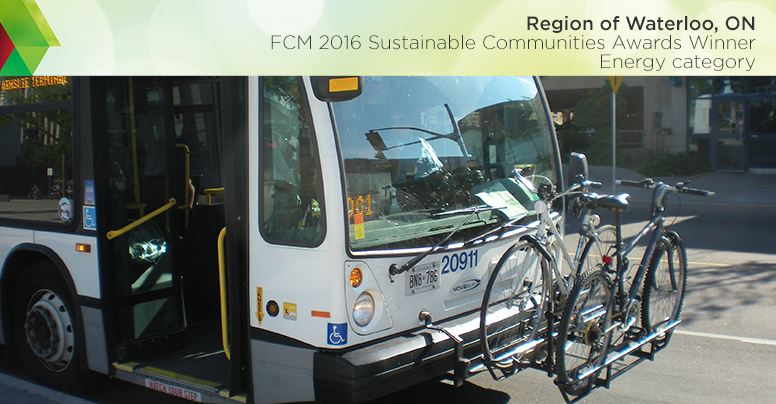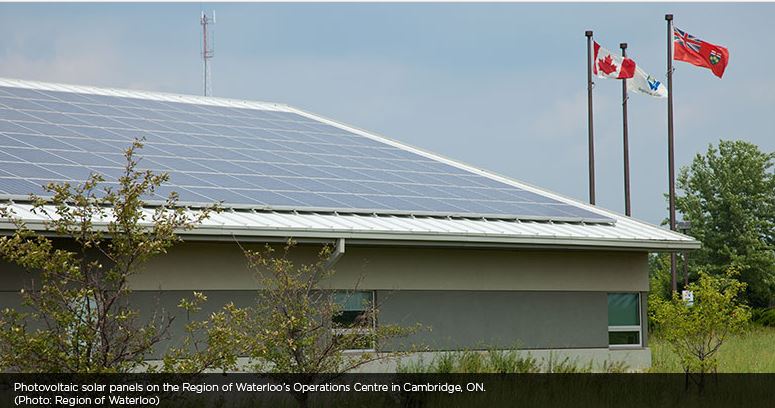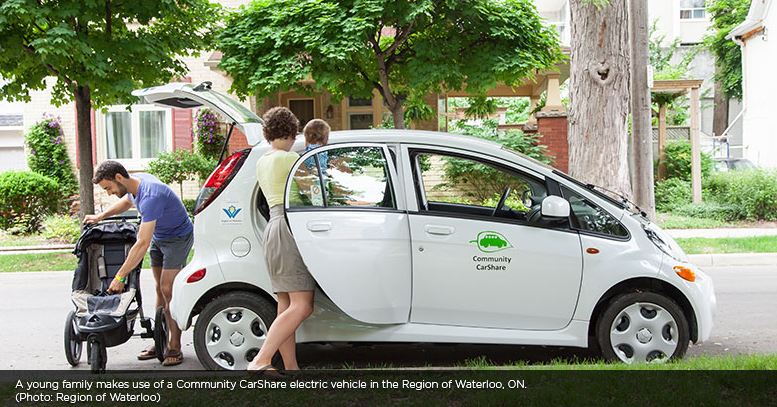Living smarter in 2020: a plan for taking action on climate change
With three cities and a regional government pulling together to address climate change, the Region of Waterloo in southern Ontario has prioritized its clean technology and sustainable energy sectors.
Read the case study below to see highlights of the region's award-winning plan, and learn about the challenges and lessons learned that can help your community in a planning a similar initiative.
About the project
| Municipal population | Project duration | Total project value |
|---|---|---|
| 569,000 | 2010–2020 | $385,000 |
Acting together, the Region of Waterloo and the three cities within its boundaries (Waterloo, Kitchener and Cambridge) have developed and begun implementing a local climate action plan that will reduce emissions, improve energy efficiency, and contribute to the prosperity of the entire region. Two local non-profit organizations worked closely with the four councils to develop the plan with shared targets and timelines. Local electric and gas utilities were also involved in developing the action plan and emissions reduction target. Stakeholders from 28 different organizations participated as well.
All four councils unanimously endorsed the plan and each administration committed to the same target: a 6 per cent reduction in GHG emissions from 2010 levels by 2020.
The action plan addresses energy use in homes and businesses, sustainable transportation, waste diversion and waste-to-energy generation, and touches on the role of sustainable water use and agricultural production. Implementation of a sample of 13 of its actions is expected to save businesses and residents more than $21 million, and generate nearly 5,400 person years of employment. Over time the plan is expected to stimulate growth in the clean technology and sustainable energy sectors within the region.
"It's not surprising that the climate action plan has received such acceptance here. We have a history of working together, of trying to get everyone to work toward common goals, and I think that played a strong role."
— Regional Chair Ken Seiling
Project Highlights
Results
| Environmental | Economic | Social |
|---|---|---|
|
|
|
Challenges
- Working with a large group of stakeholders takes time and commitment. The effort is worth it to achieve consensus and have the partner groups take ownership of the plan, but don't assume it will be easy.
- Identifying measurable actions: people generate a lot of great ideas but many of them require extensive advance analysis to determine whether they are realistic and if they have a business case that stimulates the necessary financial support.
- Collecting data and crunching numbers is demanding, but without it you can't plan concrete steps. You need the capacity to put numbers into action.
- Ongoing measurement is only part of the task: you need to collate and capture the results and translate them into terms that the public and stakeholders can easily understand. Communicating the need for change, co-benefits of actions and the path to reach the reduction target is important to gain widespread support.
Lessons learned
- Link environmental and economic benefits. It is critical for engaging people. By demonstrating cost savings, job opportunities and economic spinoffs, you can reach people with different priorities.
- Coordinate the work of municipalities, utilities and non-profit organizations. It sends a powerful message that this is really what the community wants, and helps build support.
- Develop a realistic community engagement strategy based on financial and staff capacity. Focus on high-quality interactions with a few key people.
- Use accessible off-the-shelf tools such as Twitter and Facebook for online engagement.
- Hire a full-time dedicated project manager to see the project through from start to finish.
- The process will take more time than you expect. Add some extra contingency time to your schedule.
| Partners and collaborators | Project planning documents |
|---|---|
More information
David Roewade
Sustainability Planner - Community Planning
Region of Waterloo, ON
T. 519-575-4757 ext. 3308
Want to explore all GMF-funded projects? Check out the Projects Database for a complete overview of funded projects and get inspired by municipalities of all sizes, across Canada.




